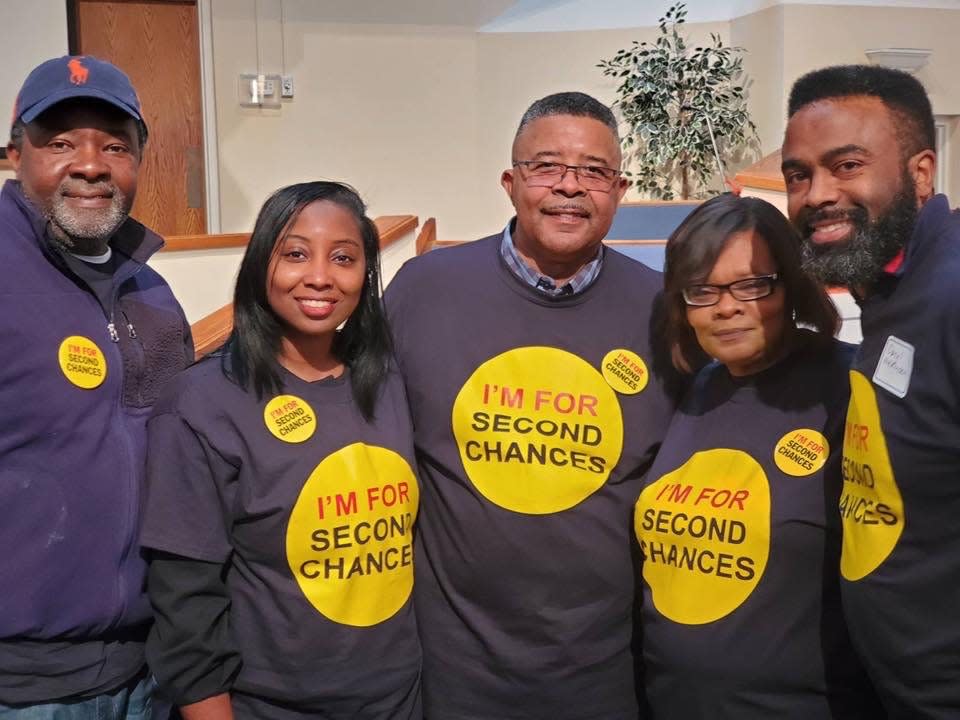Released felons in North Carolina eligible to vote in future elections
Currently, 83,837 North Carolinians may be ineligible to vote due to their past and current North Carolina laws; but some are fighting to change that.
People living in North Carolina with felony charges and also on probation, post-release supervision, or parole are not eligible to register and vote, according to North Carolina General Statutes.
Under state law, voting while being ineligible to do so is considered a strict offense, regardless if the person knew it was illegal.
People suspected to have voted illegally are notified via letter and have 30 days to submit proof that they weren’t active felons, or their voter registration would be voided, according to the North Carolina State Board of Elections' audit report.
During the 2016 general election, there were a total of 441 out of 4.8 million votes that were suspected to be cast illegally by active felons, according to N.C. Board of Elections and Ethics Enforcement 2017 Post-Election Audit Report.
Over the summer of 2018, 13 Alamance residents were charged with felony voting by a convicted felon; many accepted plea deals.
The NCSBE stated in the audit report that they were taking increased steps to ensure convicted felons weren’t unintentionally voting illegally. Some increased measures to prevent illegal voting by the NCSBE include updating voting lists and educating the public about voting requirements.
While some residents are fighting to change these laws, such as Dennis Gaddy – a North Carolina native, who spent 5 years in prison in 2000 for security violations.

"I believe a person should be able to vote once they are out of prison or jail, regardless if they're on probation or not," Gaddy said.
Gaddy spent 7 years on probation after being released in 2005 and was not able to vote until 2012, when his probation ended.
"A person can still be out of prison today, and still not able to vote because of their probation record," Gaddy said.
One in 16 Black citizens of voting age is disenfranchised, a rate 3.7 times greater than that of non-African Americans, and over 6.2% of the adult African American population is disenfranchised compared to 1.7% for the non-Black population, according to the Sentencing Project.
For North Carolina, that is a total of 39,989 Black residents disenfranchised in 2020, according to the Sentencing Project.
This data was found through the Sentencing Project compiling demographics from 1948 to 2020 to determine the number of released individuals who return to prison and thus are already included in annual head counts, and mortality each year, according to a methodology report from October 2020.
With this information, the Sentencing Project estimates the number of individuals who have completed their sentences in a given state and year who are no longer under correctional supervision yet remain disenfranchised.
State-specific trends data is collected from 2015 to 2018 for estimates for 2020 because data on correctional populations are currently available only through the end of 2018, according to a methodology report from October 2020.
Gaddy believes his strong support system helped him stay on track during probation and reestablish his citizenship.
"I had the good fortune to still have family and friends and church and community," Gaddy said, "So I didn't land as hard as some would when they come home from being away that long."
That was one of the reasons Gaddy started the Community Success Initiative in 2005.

"A lot of people come home and don't have a place to stay or they don't have a job," Gaddy said, "Those are the two main factors in a lot of cases that send people back to prison."
CSI is a nonprofit that provides resources and support to people recently released from prison or jail and advocates changes to laws around felony records.
On March 28th of this year, North Carolina's trial court ruled on the case of CSI v. Moore.
This final judgment and order stated that North Carolina's existing felony disenfranchisement law is unconstitutional, meaning that all members of the community with previous felony convictions must be allowed to register and vote, according to an update provided by the Forward Justice organization.
However, on the morning of April 26th, the NC Court of Appeals issued a ruling that temporarily implemented a "stay" in the CSI v. Moore case for the May 17th and June 26th primary elections this year.
This stay means that despite the ruling from the month prior, they were able to briefly suspend the ruling to maintain the current policy during the ongoing elections. Although this stay was granted, the Court of Appeals ruled that the NCSBE must implement the final judgment issued on March 28th following the primary elections.
Following these elections, all felons who are not incarcerated will be eligible to register and vote. Litigation on the matter is still ongoing, including an appeal before the Supreme Court of North Carolina.
Currently, people with felony charges and off of probation can simply register to vote and rights will be automatically restored.
This article originally appeared on Times-News: How felony convictions impact potential voters in North Carolina

